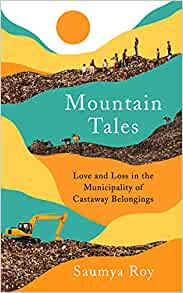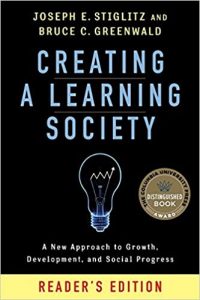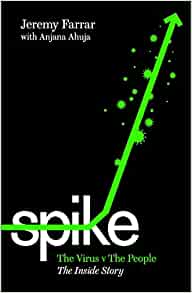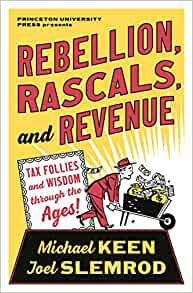Mountain Tales: Love and Loss in the Municipality of Castaway Belongings by Saumya Roy is an absolutely gripping read, but don’t expect a happy ending. (The book is called Castaway Mountain in the US.) It’s a sort of soap opera about an extended family and community who eke out their living as pickers sorting through the giant Mumbai waste mountains of Deonar. Braided with the events of their lives is the sorry tale of the city’s inability to tackle the toxic and dangerous waste, despite court cases charging them with taking action. CIty and state governments can’t agree, money runs out, for years nothing happens. Meanwhile fires break out covering the whole city in a cloud of dangerous particles and smoke, toxins leach into the water, and the giant and growing metropolis simply dumps everything from medical waste to rotting food to plastic bags and broken glass. Needless to say, accidents and illness feature prominently. So does gang violence, lack of schooling, hunger and poverty.
The author came across the community of pickers through a micro-credit agency she co-founded in 2010, and the tale stretches over several years. The book makes one feel rather helpless: the characters featured simply pile up more debt, or borrow elsewhere to repay the micro-loans. Weddings and illnesses chew up all available resources and lead to more debt. The local government is clearly incapable. And even if they could close and remedy the waste mountain (as clearly they should before a major disaster strikes), how would the pickers earn at all? So this is not an easy read, compelling as it is, and the book is not in the solutions-finding business. It is a clear-eyed, sympathetic but realistic, description of a way of life none of its readers could have imagined. And even though I’m no hoarder of stuff, it also made me determined to send even less waste to landfill. How much more plastic do we need to throw away?





